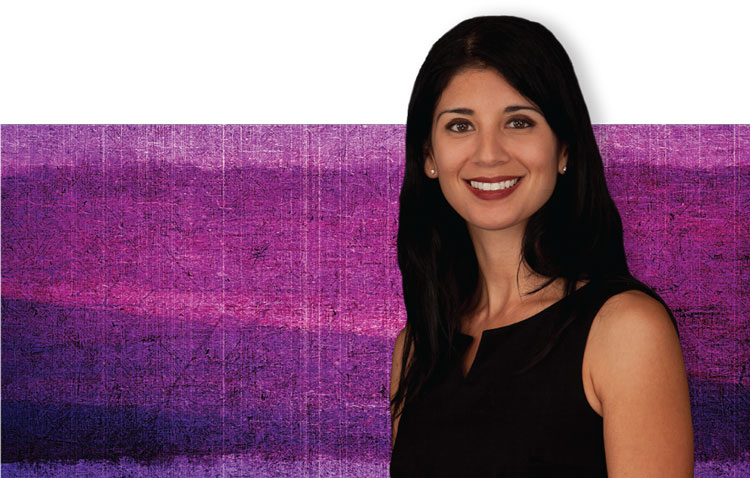Proving consent: Tech companies are creating apps to combat sexual assault

Mary Anne Franks: “If you can coerce someone into having sex with you, there is nothing to stop you from being able to coerce somebody into using an application that makes it seem that you consented.”
When having sex in Sweden, “no” means “no” and “yes” must be explicit.
In May, the country’s Parliament passed a law stating that sex without consent is rape, making it the 10th European Union country to do so. Past laws required Swedish prosecutors to show that violence, or the threat of it, had occurred. That isn’t the case anymore.
“This law change is hugely significant,” says Esther Major, senior research adviser at Amnesty International’s Europe office. “The burden is no longer on the victim to prove she fought back but on the perpetrator not to rape in the first place. It shifts the focus from the victim’s behavior to that of the accused.”
As laws change, software developers believe they can leverage technology to bolster and prove consent.
Launched in March, uConsent is an app designed to enshrine consent between two people.
“The app is like a digital handshake,” says Cody Swann, CEO of Las Vegas-based Gunner Technology, which produced the software.
The app requires two people to type in what they consent to. If both enter the same information—confirmed by each person scanning a unique QR code on the other’s phone—then a timestamp and location tag is added, and the agreement is uploaded to uConsent’s servers.
The evening then proceeds as consented, Swann says.
The #MeToo movement has brought consent and sexual assault to the fore. While technologists hope to impact how consent and sexual assault reporting occur, advocates, lawyers and researchers are often skeptical of technology’s role in this sensitive space.
In the U.S., one in five women and one in 71 men will be raped during their lifetime, according to the National Sexual Violence Resource Center. Eight out of 10 victims will know their assailant.
For Michael Lissack, executive director of Empowering Victims, a nonprofit in Massachusetts, consent apps aim to get people beyond nonverbal gestures and fumbling statements that may or may not indicate clear boundaries.
To that end, his organization created We-Consent, a consent app, and it is developing an assault reporting tool.
“We invented an app that was not designed to be used,” says Lissack of We-Consent. By merely knowing the app was available, his hope was that it would instigate a conversation between two people that might otherwise not have happened.
However, that’s a best-case scenario, says Mary Anne Franks, a professor at the University of Miami School of Law. “If you can coerce someone into having sex with you, there is nothing to stop you from being able to coerce somebody into using an application that makes it seem that you consented,” she says.
Compounding concerns, the apps don’t reflect the fluid nature of consent.
“It assumes that all sexual experiences that start out great end great,” says Erica Olsen, director of the Safety Net Project at the National Network to End Domestic Violence, “and that’s just not the case.”
Acknowledging this problem, Swann says he is talking with Amazon to create a version for Alexa that would let someone retract consent through the voice-activated assistant.
If sexual assault does occur, Callisto, a nonprofit web service from San Francisco, helps victims memorialize the event, makes a reporting choice and detects serial offenders, CEO Jess Ladd explains.
The tool allows users to upload evidence and use it when they’re ready. According to Callisto’s 2017 report, campuses with the web app see students report an assault in an average of four months, while those without the tool see reporting occur 11 months after the incident.
No one interviewed for this article knew whether data from a consent or reporting app had been used in a court proceeding. Research from 2012 indicates that for every 100 forcible rapes that occur, less than 6 percent will be prosecuted.
Susan Sorenson, director of the Ortner Center on Violence & Abuse in Relationships and a professor at the University of Pennsylvania, thinks that, unlike consent apps, Callisto may have staying power because universities struggle with campus assault.
“The systemic issue is how universities have varying degrees of integrity in investigating sexual assault on their campuses,” she says. “If all of them were doing a good job, students wouldn’t see a need for this.”
Operating outside of the university, Callisto gets around these failures, she says.
Franks at Miami believes technology like Callisto is a good thing.
“The more we can encourage victims of crime, generally, to record what has happened as soon as they can, in as much detail as they can, the better it is for the process all together and for everyone,” she says.
Write a letter to the editor, share a story tip or update, or report an error.



